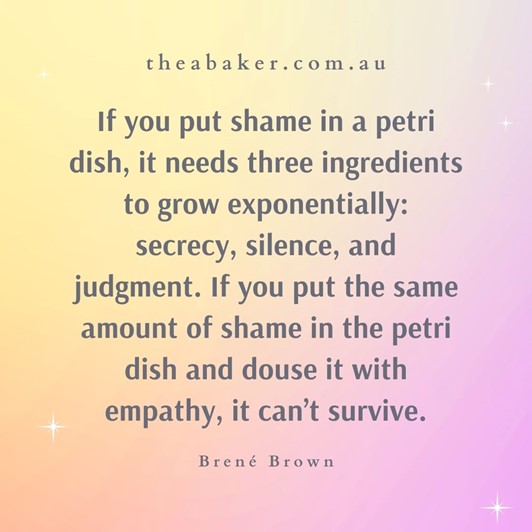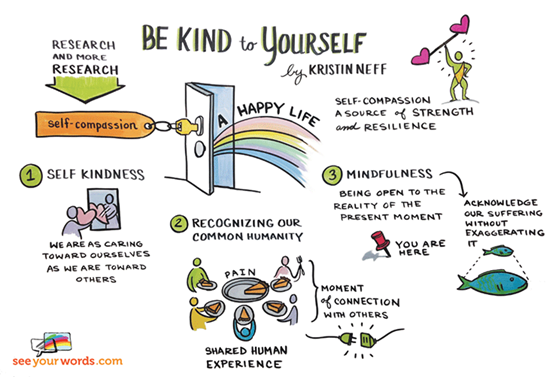The antidotes – empathy and compassion
The antidotes – empathy and compassion
This is a bit of a summary week following more conversations about shame – last week’s blog really seemed to hit home (click here if you missed it) – I really wanted to draw together some of the big concepts that really make a difference when we’re riddled with shame.
Empathy:
First up, there’s empathy.
I have honestly lost count of the number of times I’ve watched this little video or shared it with clients. It is a beautiful, and super succinct explanation of what empathy is, and more importantly, what it isn’t. Click HERE to view it.
The four attributes of empathy are:
- Perspective taking: Perspective taking refers to being willing and able to see and feel the world through the eyes of another, ‘walking in their shoes’ as the saying goes. This require putting aside our own stuff and really just listen to what they are going through.
- Staying out of judgement: Brené notes that judgement of another person’s pain or challenge discounts the experience and is often an attempt to protect yourself from the pain they are feeling. Staying out of judgement means being open to what they are feeling and refraining from comments that invalidate their experience or make them feel wrong such as, “that’s nothing” or “I don’t know why you’re getting so upset about it”.
- Recognise emotions: Recognising the emotion means looking withing yourself and remembering what it is like to have the feeling the other person seems to be feeling. It is a willingness to acknowledge fully that thy are feeling and perhaps naming it. You might ask them if you’ve identified what they’re feeling correctly by saying something like, “it sounds like you are feeling really frustrated” or “I’m sorry, it sounds like you’re feeling so sad about it”.
- Communication: Rather than saying, “at least you…” try really communicating that you understand where they are at and validate what their feeling and experience is. You might for instance say something like, “I’m so sorry you’re hurting. It sucks”. Or, to quote Brené directly, you could try, “it sounds like you’re in a really hard place right now. Tell me more about it.”
Compassion:
Empathy and compassion stem from the same desire — to better relate and understand others’ experiences. Both are beneficial to individuals and companies. But there’s a nuanced difference between empathy and compassion in everyday life. “Compassion is an empathic understanding of a person’s feelings, accompanied by altruism, or a desire to act on that person’s behalf.”
Put simply:
Compassion is when you relate to someone’s situation, and you want to help them. You see someone in trouble, and you feel like pitching in.
For example, you might help someone pick up their groceries if they dropped their shopping basket on the floor. Every minor act you choose in your day can help balance out negative emotions. It’s also different from the basic concept of “kindness” in that the word compassion implies that you see yourself in their shoes.
It’s possible to be kind for practical reasons, without any real empathy for the other’s suffering. But most often, there’s an overlap.
Having compassion for yourself is then like levelling up in the compassion stakes. Kristen Neff is the guru in this space and she says, that self-compassion involves acting the same way towards yourself when you are having a difficult time, fail, or notice something you don’t like about yourself. Instead of just ignoring your pain with a “stiff upper lip” mentality, you stop to tell yourself “this is really difficult right now, how can I comfort and care for myself in this moment?”
Instead of mercilessly judging and criticising yourself for various inadequacies or shortcomings, self-compassion means you are kind and understanding when confronted with personal failings – after all, who ever said you were supposed to be perfect?
If you would like to explore some of these concepts in more detail, we have a team of therapists at Thea Baker Wellbeing – please reach out to us at: hello@theabaker.com.au / 03 9077 8194.


